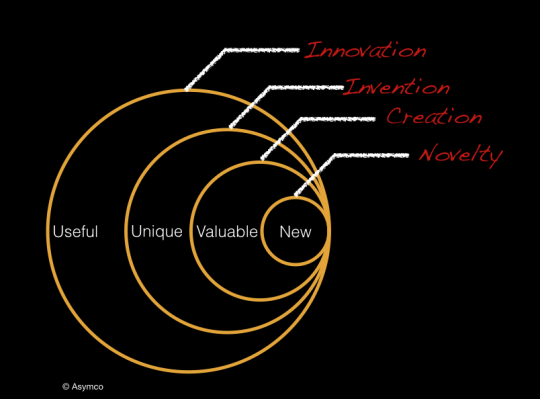Note: This article is part of the ‘Principles Project,’ a list of principles, axioms, and beliefs that undergird a Christian view of economics, liberty, and virtue. Click here to read the introduction and other posts in this series.
The Principle: 25A — We have a moral obligation to promote innovation.
The Definitions:
Innovation – Something (i.e., an idea, method, process, product, service, tool, etc.) that is new, original, or improved which creates value and is uniquely useful. (Source)
Human flourishing – A holistic concern for the spiritual, moral, physical, economic, material, political, psychological, and social context necessary for human beings to live according to our nature as made in the image of God. (Source 1; Source 2)
The Explanation:
What does morality have to do with innovation?
“If you understand the domain of ethics properly, the connection is clear,” says business ethicist Chris MacDonald. “In point of fact, innovation is an ethical matter through and through, because ethics is fundamentally concerned with anything that can promote or hinder human wellbeing.”
Before we can defend the claim that we have a moral obligation to promote innovation, we must support two related premises: (1) innovation can be morally worthy, and (2) there is a general moral obligation to be as innovative as possible.
How innovations can be morally worthy
To determine whether innovation is morally worthy, we must first understand what makes something an innovation.
Because innovation in valuable (since, by definition, it “creates value”) the term itself has become a corporate buzzword and is often applied inappropriately. A marketer may claim, for example, that a product has an “innovative new color.” This is unlikely to be true since, except in rare situations, a change in the color of a product is rarely going to create value in a way that is uniquely useful.
How then do we distinguish an innovation from that which is merely “new”? Horace Dediu proposes a taxonomy of related activities that put innovation in context:
- Novelty: Something new
- Creation: Something new and valuable
- Invention: Something new, having potential value through utility
- Innovation: Something new and uniquely useful
As Dediu notes, the taxonomy has a hierarchy:
Creations are novel, inventions are creations and innovations are usually based on some invention. However inventions are not innovations and neither are creations or novelties. Innovations are therefore the most demanding works because they require all the conditions in the hierarchy. Innovations implicitly require defensibility through a unique “operating model”.
This helps us identify what makes something an innovation. But to determine whether they are morally worthy requires making a value judgement about how they are uniquely useful. From a Christian perspective, an innovation is morally worthy when it is uniquely useful for the promotion of human flourishing.
Why we have a moral obligation to be as innovative
If we consider the goods, services, and processes that have lead to flourishing in the modern age, we will almost always find that they are the result of innovation. As MacDonald says,
Innovation is generally a good thing, ethically, because it is aimed at allowing us to do new and desirable things. Most typically, that gets expressed in the painfully vague ambition to ‘raise productivity.’ Accelerating our rate of innovation is a worthy policy objective because we want to be more productive as a society, to increase our social ‘wealth’ in the broadest sense. The 20th Century has seen a phenomenal burst of innovation and increases in wellbeing, exemplified not least by the fact that life expectancies in North American have risen by more than half over the last hundred years. The extension and enriching of human lives are good goals, which in turn makes innovation generally a good thing.
Indeed, when looked at that way, innovation isn’t just a ‘good,’ but a downright moral obligation. Yes, lives for (most) people in developed countries are pretty good. But many still don’t have happy and fulfilling lives; many children, even here, still go to bed hungry. Boosting productivity through innovation is a key ingredient for making progress in that regard. And if less developed nations are going to be raised up to even a minimally tolerable standard of living, we need innovations that will help them, and we need innovations that will make us wealthy enough that we can afford to be substantially more generous toward them than we currently are.
Conclusion
Because the Bible commends the promotion of flourishing, we should embrace innovations that achieve this goal.
Of course, because we live in a sinful world, we are not always able to determine what innovations will lead to flourishing. We also cannot prevent otherwise good things from being used in a manner that harms or degrades our humanity. This should not lead us, though, to embrace inaction and stagnation. The promotion of human flourishing requires us to promote certain economic goods. Likewise, we have an obligation to oppose actions and policies that hinder those same economic goods (see Principle #25). We therefore have a similar obligation to create, promote, and champion innovation that leads to greater human flourishing.


